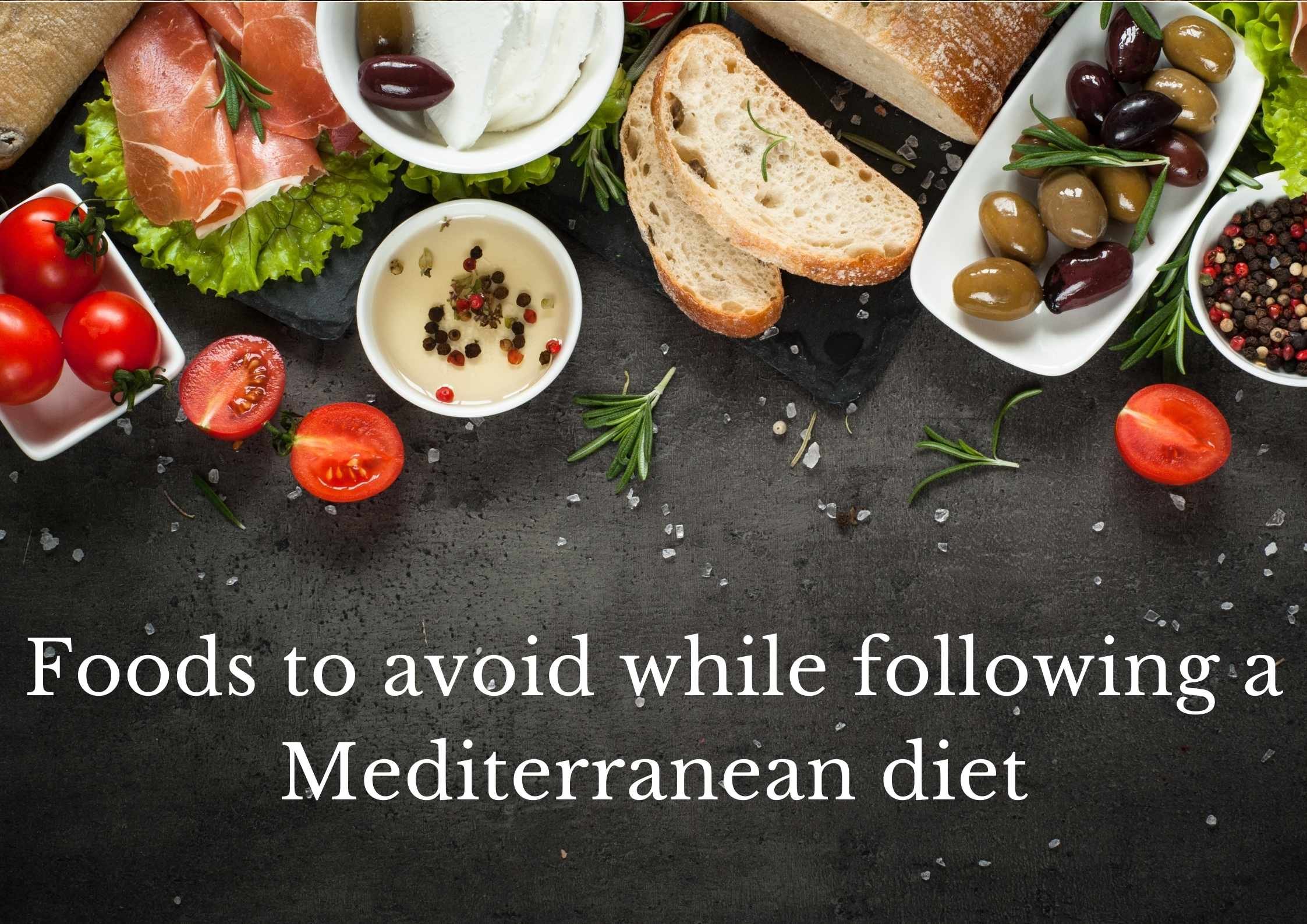Welcome to the world of Mediterranean diets
Are you looking to improve your health? If so, a Mediterranean diet may be the answer for you. A Mediterranean diet is a type of healthy eating pattern that is inspired by the traditional eating habits of people living in countries around the Mediterranean Sea.
What is the Mediterranean diet?
The Mediterranean diet is not a fad diet or a weight loss program. It is a way of eating that has been followed by people living in countries around the Mediterranean Sea for centuries. The Mediterranean diet emphasizes eating fresh, whole foods. This includes plenty of fruits and vegetables, as well as healthy fats, whole grains, and lean protein.
The basic tenets of the Mediterranean diet:
There is no one-size-fits-all Mediterranean diet. Instead, it is more of an eating pattern that can be adapted to fit your individual needs and preferences. However, there are some basic tenets of the diet that are generally agreed upon. These include:
Eating plenty of fruits and vegetables.
The Mediterranean diet is rich in fresh fruits and vegetables. Aim to fill half of your plate with fruits and veggies at every meal.
Choosing healthy fats.
Olive oil is a staple of the Mediterranean diet. Choose olive oil or other healthy fats, such as avocados, nuts, and seeds, in place of unhealthy saturated fats.
Limiting red meat.
Red meat is eaten sparingly in the Mediterranean diet. When it is consumed, choose lean cuts of meat and eat in moderation.
Eating fish and seafood regularly.
Fish and seafood are rich in heart-healthy omega-3 fatty acids. aim to eat them at least a couple of times per week.
Including whole grains.
Whole grains are an important part of the Mediterranean diet. The Mediterranean diet recommends choosing whole wheat bread, brown rice, and other whole grain options over refined white flour products.
Eating moderate amounts of dairy.
Dairy is consumed in moderation in the Mediterranean diet. When choosing dairy products, opt for low-fat or fat-free options.
Drinking red wine in moderation.
Moderate alcohol consumption, particularly red wine, is thought to be beneficial for heart health. If you choose to drink alcohol, do so in moderation.
Cutting back on processed foods.
Processed foods are often high in unhealthy saturated fats, added sugars, and sodium. They are not a staple of the Mediterranean diet.
Using herbs and spices instead of salt to flavour food.
Herbs and spices not only add flavour to food but can also have health benefits. Use them generously to flavour your meals.
Health benefits of the Mediterranean diet:
There are many potential health benefits associated with following a Mediterranean diet. These include:
Weight loss.
The Mediterranean diet can help you lose weight or maintain a healthy weight. This is because it is high in fruits and vegetables and low in refined carbs and unhealthy fats.
Lower risk of heart disease.
The Mediterranean diet has been shown to reduce the risk of heart disease. This may be due to the fact that it includes heart-healthy foods, such as fish, nuts, and olive oil.
Reduced risk of type 2 diabetes.
Following a Mediterranean diet has been shown to lower the risk of developing type 2 diabetes. This may be due to the fact that the diet helps with weight loss and improves insulin sensitivity.
Lower risk of Alzheimer’s disease.
There is some evidence to suggest that the Mediterranean diet may help protect against Alzheimer’s disease. This may be due to the fact that the diet reduces inflammation and promotes healthy blood flow to the brain.
Improved mental health.
Following a Mediterranean diet has been linked with improved mental health. This may be due to the fact that the diet includes foods that protect against inflammation and promote healthy blood flow to the brain.
Better digestion.
The Mediterranean diet can help improve digestion. This is because it includes plenty of fiber-rich fruits and vegetables, as well as healthy fats that help keep your digestive system functioning smoothly.
Reduced risk of cancer.
There is some evidence to suggest that following a Mediterranean diet may help reduce the risk of cancer. This may be due to the fact that the diet includes plenty of antioxidants and anti-inflammatory foods.
How can you start following a Mediterranean diet?
If you’re interested in following a Mediterranean diet, there are a few ways to get started.
First, try to incorporate more fruits and vegetables into your diet. Fruits and vegetables are a staple of the Mediterranean diet, so this is a good place to start. You can also try adding some healthy fats, like olive oil or avocados. Another way to follow a Mediterranean diet is to eat more fish and seafood. Fish is a great source of protein and omega-3 fatty acids, both of which are important for a healthy diet. Finally, you can try incorporating some whole grains into your diet. Whole grains are a healthy source of fiber and vitamins, and they can help you feel full longer. When you’re looking for recipes to make at home, look for ones that include these healthy ingredients. With a little effort, you can easily start following a Mediterranean diet.
FAQs about the Mediterranean diet:
The most frequently asked questions about the Mediterranean diet include:
Is the Mediterranean diet expensive?
No, the Mediterranean diet is not expensive. In fact, it can even save you money in the long run. This is because the diet includes mostly whole, unprocessed foods.
Is the Mediterranean diet hard to follow?
No, the Mediterranean diet is not difficult to follow. In fact, it is a very flexible diet. This means that you can easily tailor it to your own individual needs and preferences.
Are there any side effects of following a Mediterranean diet?
There are no known side effects of following a Mediterranean diet. However, as with any diet, it is always best to speak with your doctor before making any changes to your eating habits.
Will I lose weight if I follow a Mediterranean diet?
Yes, you may lose weight if you follow a Mediterranean diet. This is because the diet is high in fruits and vegetables and low in refined carbs and unhealthy fats.
How much fish should I eat per week?
The Mediterranean diet recommends eating fish at least twice a week. This can help you get the necessary amount of omega-3 fatty acids, which are important for a healthy diet.
Can I drink alcohol on the Mediterranean diet?
Yes, you can drink alcohol on the Mediterranean diet. However, it is recommended that you drink in moderation.
What type of oils should I use on the Mediterranean diet?
Olive oil is the best type of oil to use on the Mediterranean diet. Olive oil is a healthy source of fat and has many benefits for your health.
Are eggs allowed on the Mediterranean diet?
Yes, eggs are allowed in the Mediterranean diet. Eggs are a good source of protein and can be cooked in many different ways.
Can I eat cheese on the Mediterranean diet?
Yes, you can eat cheese on the Mediterranean diet. However, it is best to choose low-fat or non-fat varieties.
Is pasta allowed on the Mediterranean diet?
Yes, pasta is allowed on the Mediterranean diet. Pasta is made from whole wheat flour and is a good source of complex carbs.
Sample menu for a day on the Mediterranean diet:
Here is a sample menu for a day on the Mediterranean diet:
Breakfast:
Omelet with vegetables.
Whole grain toast.
Fruit salad.
Lunch:
Grilled chicken salad with olive oil and vinegar dressing.
Whole grain bread.
Fruit yogurt.
Green tea.
Dinner:
Fish with roasted vegetables.
Green salad with olive oil and lemon dressing.
Brown rice.
Red wine.
Fresh fruit for dessert.
As you can see, the Mediterranean diet includes plenty of healthy and delicious foods. With a little planning, you can easily make meals that follow the diet.
Foods to avoid while following a Mediterranean diet:
While following a Mediterranean diet, there are a few foods that you should avoid. These foods include:
Refined carbs:
Refined carbs are found in processed foods and can cause spikes in blood sugar levels. Examples of refined carbs include white bread, pastries, and candy.
Saturated fats:
Saturated fats are found in animal products and can increase your risk for heart disease. Examples of saturated fats include red meat, butter, and cream.
Trans fats:
Trans fats are found in processed foods and can increase your risk for heart disease. Examples of trans fats include margarine, shortening, and some types of cooking oil.
If you’re interested in following a Mediterranean diet, these are the types of foods you should avoid. by avoiding these foods, you can help yourself stay healthy and prevent diseases.
Disadvantages of the Mediterranean diet:
While the Mediterranean diet has many advantages, there are a few disadvantages to consider as well. These disadvantages include:
You may miss out on important nutrients:
If you only eat foods that are allowed on the Mediterranean diet, you may miss out on important nutrients. This is because the diet excludes some food groups, such as dairy and grains.
You may have trouble following the diet long-term:
The Mediterranean diet can be difficult to follow long-term. This is because it requires you to change your eating habits and make lifestyle changes.
If you’re considering following a Mediterranean diet, these are a few things you should keep in mind. The Mediterranean diet has many benefits, but it also has a few drawbacks.
Bottom line: should you try the Mediterranean diet?
The Mediterranean diet is a healthy way of eating that has been shown to have many health benefits. The key components of the diet include eating plenty of fruits and vegetables, choosing healthy fats, limiting red meat, eating fish and seafood regularly, including whole grains, eating moderate amounts of dairy, drinking red wine in moderation, using herbs and spices instead of salt to flavour food, and cutting back on processed foods.
If you’re interested in following a healthy diet, the Mediterranean diet is a good option to consider.









